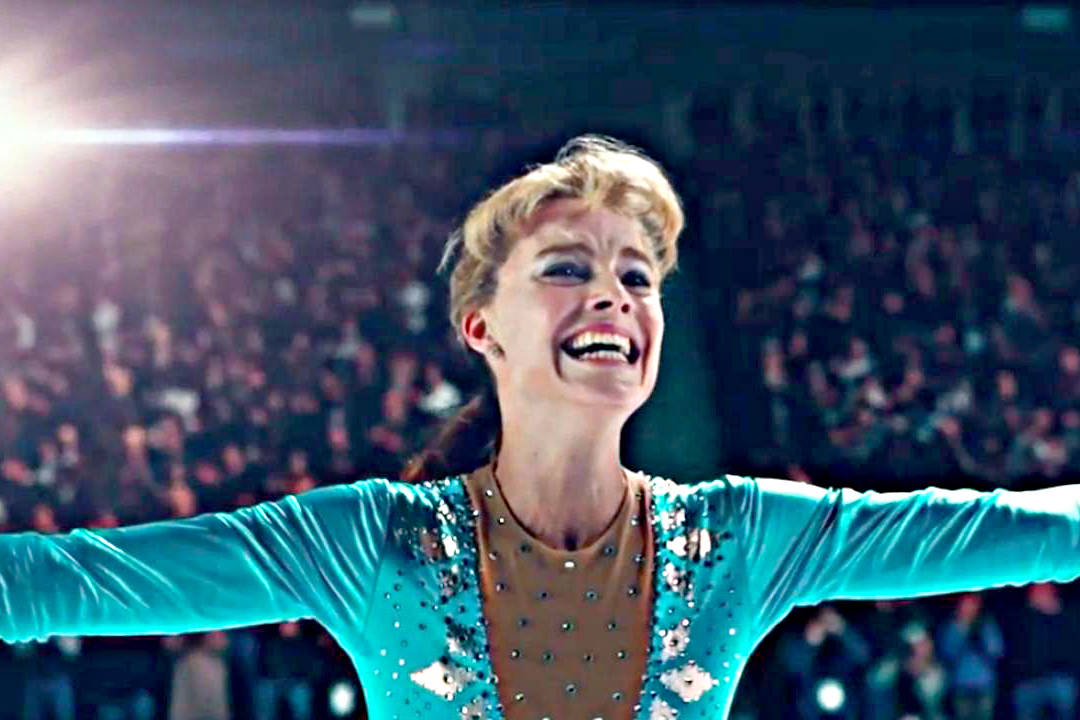Surely Tonya Harding was one of the last great pre-internet tabloid sensations, an unlikely headliner in a tacky saga of criminal intentions and bad taste. Before the internet, a jaw-dropping scandal like Harding’s could linger for a while, instead of being instantly elbowed aside by Twitter outrage or the latest meme. The drama unfolded in 1994, when an assailant hit figure skater Nancy Kerrigan in the leg with an iron bar; rumors flew that Harding, Kerrigan’s rival, had something to do with the attack. At the Olympics a few weeks later, both Kerrigan (bruised but not broken) and Harding competed amid a swirl of bizarre headlines about Harding’s fantastically trashy ex-husband Jeff Gillooly and his beefy, sage-like sidekick Shawn Eckhardt. Gillooly and Eckhardt did jail time for planning the attack; Harding has always maintained she wasn’t in on it. The crime was lurid enough, but the story had multiple levels, including economic: Harding was a blue-collar kid who sewed her own costumes out of financial necessity, a contrast to Kerrigan’s movie-star looks and classy commercial endorsements.
The movie version of this tale, I, Tonya, works hard to suggest why we might sympathize with Harding: her poverty, the abuse she suffered from her husband and her mother, the snooty condescension of skating’s top brass. Margot Robbie plays Tonya, de-glamorizing herself amid Harding’s working-class Oregon environs. Screenwriter Steven Rogers and director Jeff Gillespie (Lars and the Real Girl) tell the story in a signature mode for American moviemaking these days: wavering between satire and sincerity, deploying plenty of direct-to-camera mockumentary speeches, and hurtling along at Scorsese speed.
The effect is queasy. The film wants us to appreciate Harding’s struggles while it cues us to laugh at the bad mullets and redneck lingo. Gillooly (played by an actor I find perpetually anonymous, Sebastian Stan) is hapless and ridiculous, which is indeed the way he came across while the scandal was unfolding. As Eckhardt, who claims vague connections with international espionage, Paul Walter Hauser gets laughs with his Buddha-like delivery. But the movie’s flippant attitude sits uneasily with the scenes of domestic violence that unfold between Jeff and Tonya, even as it gives Tonya a voice in these brutal moments (she literally narrates some of them to the camera while they happen). The movie plays up the zaniness of this all-American tale, but also has Harding address the camera and guilt-trip the audience about having fun at her expense. This is not complexity; this is trying to have it both ways.
For whatever reason, Kerrigan doesn’t figure much here. Much more dominant as a character—and the best thing about I, Tonya—is Harding’s mother, LaVona Golden. (Tom Robbins couldn’t have made up better names for these folks.) She’s portrayed as emotionally and physically abusive, a stage mother who pushes her daughter to excel at the same time she constantly undercuts her. Allison Janney, resplendent in a Moe Howard hair-do and oversized eyeglasses, makes a meal of this character—it’s a great chance for an actor who should have had many big parts like this. Janney cuts through the film’s facetiousness with a cleaver; because she never softens the edges of LaVona’s cruelty, she actually makes you understand where a monster like this might come from. Yet she’s viciously funny, too.
Kudos to Margot Robbie (also a producer on the film) for picking projects that stretch her image, even if her classic good looks don’t really fit Harding’s tomboy pugnaciousness. It’s like watching George Clooney play a boxer—you appreciate the effort without quite buying it. The skating scenes—including a single-take doozy of the moment Harding became the first American woman to execute a triple-axel—are done by digitally transplanting Robbie’s head onto a skater’s body or a CGI double, a seamless effect that is nevertheless slightly creepy. I, Tonya seems sincere in presenting Tonya Harding’s side of the story, but it just can’t figure out the tone. The resulting movie, like the scandal itself, leaves behind a distinctly bad taste. Opens Friday, Jan. 5 at SIFF Cinema Uptown; Rated R
film@seattleweekly.com






